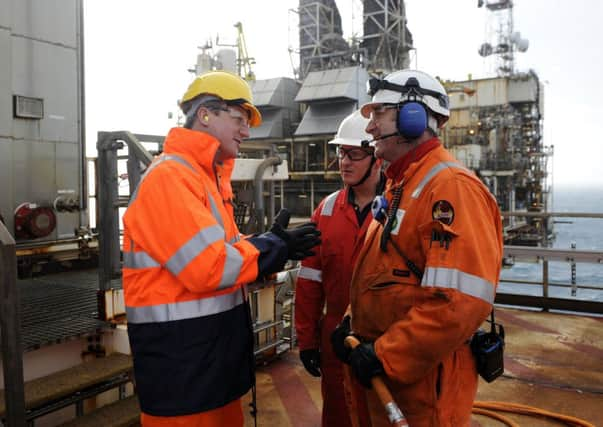Leaders: Oil and gas in our future however we vote


But they have not run out yet. In fact, despite this industry attracting the euphemism “mature”, there is a lively commercial interest in the North Sea oil industry, particularly in the deep-water area west of Shetland. In November last year a £4 billion development was announced for the Kraken field, with the aim of producing 140 million barrels over the next 25 years.
This should be borne in mind when we consider reports like the one we highlight today, which shows that drilling for new reserves in the North Sea plunged to its lowest level ever last year. Industry bosses warn that “the clock is ticking” on Scotland’s oil and gas industry.
Advertisement
Hide AdAdvertisement
Hide AdIt should not be surprising that new drilling is declining. After all, Scotland’s oil fields have been scrutinised by the world’s energy giants for half a century, and the largest, and easiest to exploit, deposits were identified at an early stage.
But it would be a mistake to think of North Sea oil and gas as a twilight industry that is somehow part of our past and not our future.
The perfect demonstration of this is the work done by Aberdeen industrialist Sir Ian Wood for the UK government on how to get the best – for industry and ultimately for the taxpayer – out of the North Sea.
As was made clear by UK Energy Secretary Ed Davey this week, concerted action could increase British oil and gas production by up to four billion barrels and £200bn over the next 20 years. This is an oil boom all by itself.
That is with current technology, and the current oil price. Who can predict what commercial opportunities would present themselves in the North Sea in the event of a much higher oil price and new technical advances in deep-sea extraction?
In the middle of an independence referendum campaign, we should not be unduly concerned about one constitutional settlement or another having much of an effect on the North Sea’s potential. Oil firms work in some of the most politically tempestuous areas in the world, particularly in the Middle East and sub-Saharan Africa. A relatively small disagreement about levels of Scottish sovereignty will not have much effect on the sector’s future.
What is a very valid question, however, is what we should do with the oil revenues that will continue flowing from the North Sea for at least a generation.
Do we in Scotland take the lion’s share for ourselves and use it to benefit only those living north of the Border with England? Or do we continue to share this revenue with the rest of the United Kingdom? Oil matters, economically and politically.
What cost to save lives?
Advertisement
Hide AdAdvertisement
Hide AdWhen we hear of cancer patients being denied the drugs that might alleviate their suffering, improve their quality of life or actually extend that life, it is natural that our first reaction is one of outrage. Why on earth should financial considerations be deemed more important than helping those in need? Is it morally acceptable to ration life?
And yet it is becoming increasingly clear that, without some tough decisions, the drugs budget of our National Health Service will become a bottomless pit down which we could throw hundreds of millions of pounds that we simply do not have.
At a Holyrood committee hearing yesterday, MSPs heard evidence from Professor David Webb, who carried out a review of the country’s drug authorisation system for the Scottish Medicines Consortium. The new system in Scotland for approving treatments, he said, could benefit 1,500 more patients in its first year than was previously thought.
Good news, one might understandably say. But Professor Webb warned that this would cost £50 million more than the original £70m estimate, taking the cost of the new measures to an eye-watering £120m.
Politics is about priorities, and it may well be that this sum of money can be found by Scottish ministers in the next financial year, and for every year after that.
But this is a phenomenon that is only going to be become a bigger and bigger feature of our political debate. With new drugs coming on to the market all the time, and people surviving longer into old age, we will need to decide at what cost to the rest of society are we prepared to accept so that no medicines or treatments are denied.